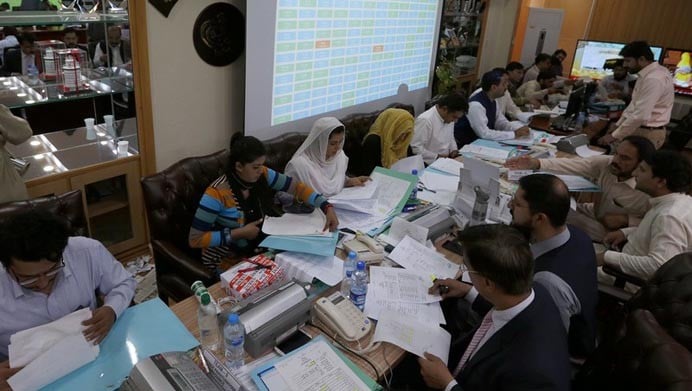
RTS should have been tested for a couple of months as handling of such big and important data is no small thing

The announcement about failure of the Result Transmission System (RTS), employed by the Election Commission of Pakistan (ECP) for electronic transmission of results from polling stations has shocked many.
Prior to the election, the ECP had celebrated testing this android-based application developed by Nadra that could help transmit results in real time to the ECP. Around 200,000 staff of ECP was trained to use this app installed on their cell phones. A special allowance was announced for those using it successfully.
Though RTS is not a substitute to the physical transportation of election material, including forms carrying vote count, it was meant to ensure transparency, early transmission and tabulation of results, though provisional ones. Along with the data collected on vote count in favour of each candidate at a polling station, the staff was supposed to send an image of the signed Form 45.
In fact, the RTS was to meet the requirements of Section 13(2) of the Election Act, 2017, under which the Presiding Officers (PrOs) were supposed to transmit results directly from polling stations using their mobile phones. This app automatically uses Geographical Positioning System (GPS) to record the location and the time it is uploaded. It was used successfully in four by-elections. The RTS was to be linked with the Result Management System (RMS) at the office of the Returning Officer (RO) to help prepare draft Form 47 electronically — but this could not happen as the system crashed.
There are two types of charges levelled by people following the failure of RTS. One, it might have been done intentionally and two, the app had not been tested under peak pressure conditions to remove glitches before time. While the first charge cannot be established without proper investigation, there are examples where complaints about flaws in the RTS were raised before elections.
ROs from cities, including Faisalabad and Okara, wrote separate letters to Nadra a day before the polls, complaining about the working of RTS. The complaints included those about discrepancies related to data pertaining to polling stations and contesting candidates in different constituencies.
A PrO in Chakwal district says the RTS was working fine in the start but as time passed it became slow and unresponsive. "It was around midnight when they were officially asked to stop trying to use it and focus on the manual result transmission system," he adds.
While ECP claims the failure of RTS, Nadra that helped develop it has denied there was any major issue at their end but do not have any evidence of testing it at a large scale before launching it. Muhammad Ijaz, an IT professional based in the US, thinks the system should have been tested earlier by applying maximum expected load on the election day. "When the load increases you have to increase bandwidth accordingly and decrease when the situation is otherwise."
Read also: Editorial
Ijaz wonders why there was no alternative plan in place to counter the situation that arose on the election day. "The system should have been tested for a couple of months as handling of such big data and that also of extreme importance is no small thing."